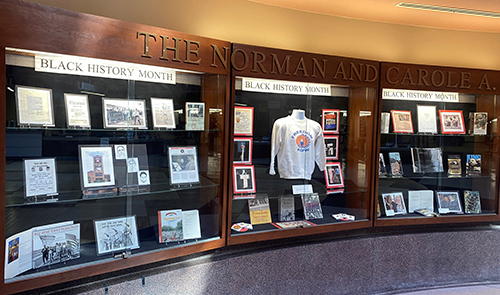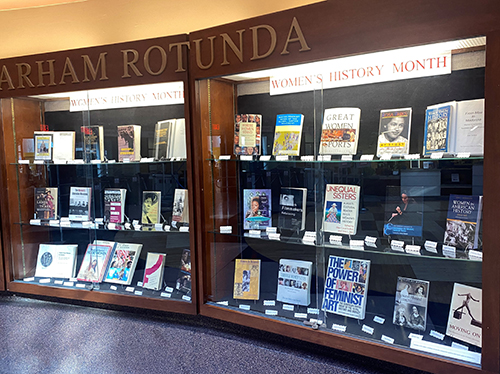Exhibit Dates: January 26, 2023 – June 30, 2023
Exhibit Location: Barham Rotunda
Black History

Black History Month gives the Queens College Library the opportunity to celebrate and honor the efforts of QC students and faculty who sought social justice for all by their participation in the Civil Rights Movement of the 1960s, especially the Mississippi Freedom Summer in 1964. Starting in 2009, Queens College Library’s Special Collections and Archives (SCA) began collecting materials from alumni, faculty, and community members involved in these movements that now constitute part of the Civil Rights Collection of the photographs, printed materials, and miscellanea seen in the present exhibition documenting experiences of the participants that speak to the courage and optimism as well as to the rich history of QC activism during the civil rights movement.
In 1989, the QC library clock tower was dedicated to the memory of James Earl Chaney, Andrew Goodman (a QC student), and Michael Schwerner, civil rights activists who were murdered during the Congress of Equality’s (CORE) Freedom Summer project of 1964 by members of the Ku Klux Klan. Their deaths have inspired countless others to continue the struggle for equality and justice for all Americans.
Women History

The inclusion of materials supporting Women History movement in the exhibition bridges the coordinated efforts of the suffragists across centuries and countries for abolitionism and women’s rights by demanding change to the voting laws. The suffragists understood the persuasive power of language and utilized postcards to spread their textual information; propagated visibility through marches and campaigns; and contributed to political empowerment through the visual arts (posters, collages, buttons, et al) to connect to the great and just causes of human history in order to disseminate their message. Their sense of energy and urgency established a new and formidable expression in the world that ultimately changed cultural perceptions and reshaped the discourse of American democracy for the better.





